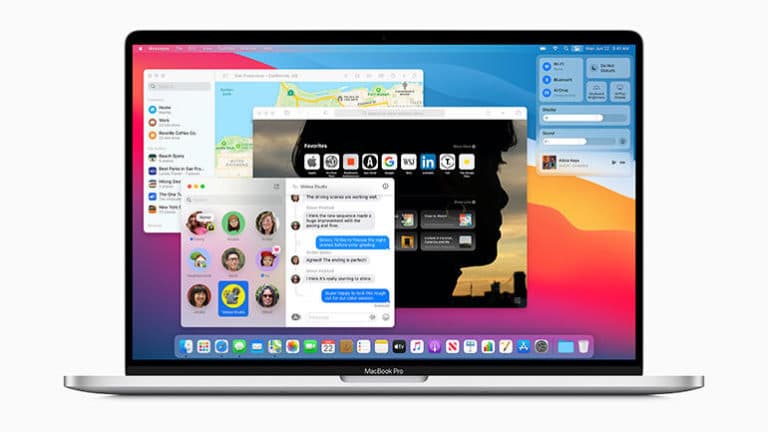Apple has released the latest update for its operating system for laptops and desktops. The new version brings several changes. It is the first version of macOS with support for ARM processors.
With macOS 11.0 Big Sur, Apple has changed the version number of its operating system for the first time in 20 years. At the end of 2000 Apple released the first version of Max OS X and later versions of the operating system were called macOS 10.
ARM support
Apple clearly sees the new version as an important new step for the company, mainly because of its support for Apple’s ARM processors. Those faster SoCs can be found in the new MacBook Pro, MacBook Air and Mac mini announced by the company earlier this week.
Incremental
Apart from the support for the ARM architecture, the updates compared to macOS 10.15 Catalina seem quite incremental. The design now looks a bit more like iOS and iPadOS and some minor new features have been added.
The most important new feature is that computers with an Apple Silicon processor can now natively run apps for iOS and iPadOS. Notifications and toggles for things like wifi and screen brightness have also been made a bit more accessible, and so has the notification centre. The design of these elements now resembles that of Apple’s mobile operating systems.
Apple has also made some improvements to the device security features, and the Spotlight search feature is a bit faster and clearer. Applications such as Safari, Messages, the App Store, Notes, Photos and Maps have also been received some changes.
Versions
Not all Apple computers get the new version of macOS Big Sur. Most computers older than 6 or 7 years will have to make do with older versions. They do still get security updates, though. Big Sur can be installed on the following computers:
| MacBook | 2015 and later |
| MacBook Air | 2013 and later |
| MacBook Pro | Late 2013 and later |
| Mac mini | 2014 and later |
| iMac | 2014 and later |
| iMac Pro | 2017 and later (these are all models) |
| Mac Pro | 2013 and later |
Problems
Just when the new operating system became available, many people started complaining about slowdowns on their computers, even in older versions of the OS. This turned out to be an issue with an Apple authentication server that did not respond to requests from the computers, Ars Technica writes. This problem has now been solved.
